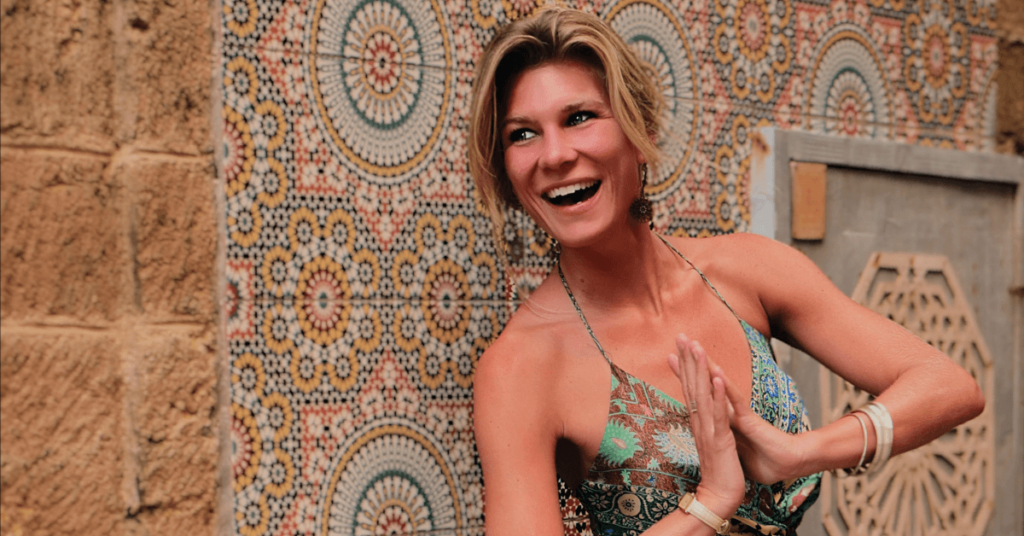Just as your body needs practise to perform a yoga asana, your brain needs repetition to learn a new language, your mind also needs training to effectively serve you to live a calm, happy and healthier life. When you train your mind, you’ll also gain willpower and determination. These characteristics help you to, for example, make that yoga asana an advanced posture or open yourself to experiment with new vocabulary. A calm, trained mind can do anything from disconnecting from your limiting beliefs to living a happier, healthier life while following your calling.
Why should you train willpower?
At the start of something new, everything seems exciting, but whoever you are, wherever you are from, the excitement starts to fade and after a while and you get frustrated, lazy, indifferent or unconcerned, and give up on our goals. Training your willpower will make your process more motivating by setting realistic processes and end-goals.
‘As long as you want it, everything is possible’ is a myth.
This is striving for superficial happiness. Happiness doesn’t make you successful, and success doesn’t make you happy. Happiness can bring success if you know how to, and continue to, balance pleasure, strengths and fulfillment.
You could say: ‘As long as you’re striving for the right thing, it’s possible’.
Ready to learn how you can actually stick to your willpower and determination?
1. Letting go of unrealistic goals
These are goals that take up too much time and goals that are not in your reach right now. Wanting too many things at the same time requires too much effort from your body and mind and in the end limits your success. Choose quality over quantity!
E.g.: working out 7 times a week, exhausting yourself and, as a result, not wanting to return to the gym after a couple of weeks.
Or: Working your bum off on your online business, hoping to see your bank account grow from 0 to 10.000 in one month.
2. Replacing those goals with realistic goals
To achieve and have success, we need to combine pleasure, strengths and fulfilment by taking small steps. Taking smaller steps gives you the opportunity to celebrate your little successes and actually grow according to where you are in life right now. You’ll feel less competitive, less frustrated and instead, calmer, more grateful and happier.
E.g.: Work out 3 times a week and you’ll notice you have more motivation and maybe even miss the gym on the days you don’t go. This will make you stick to your routine longer and have a more positive effect in the long run.
Or: Starting a business takes time, patience and effort. Lowering your expectations will make you feel less defeated when you don’t reach your goal, more determined when you do reach your goal and will surprise you when you overachieve (do better than your goal).
3. Routine and habits (check out our earlier blog about routines and habits).
Rituals and routines are the only accepted methods when it comes to automatic behaviour. People with a (healthy) routine are more likely to reach their goals, fulfil their wishes and meet deadlines.
Your body truly integrates a (healthy) habit after 66 days and thereafter will start to miss it when you’re not performing it. Therefore, give yourself time to adapt to new and healthy actions in your routine and stick to them. Need help with shaping your routine? Read the ‘blame the brain’ blog and download the worksheet.
4. The words you use or tell yourself
Speak positively to yourself and your actions will change. Your brain doesn’t like words such as: ‘not’, ‘none’, ‘never’, ‘no one’. Telling yourself things such as: ‘I’m not going to eat sugar anymore’, or ‘I’ll never get up late from now on’ are first of all unrealistic and unnecessary, but it also takes time for the brain to then find out what it’s supposed to do instead! Telling yourself: ‘I’ll eat more fruit instead of sugar’, or ‘I’ll set my alarm and get up earlier’ not only sound more achievable but the brain also understands what it’s meant to do straight away.
5. Doing it, not just thinking it
There’s no such thing as ‘the right time’ and no one else to blame but yourself. Here’s a list of the top 5 best excuses used by professional procrastinators:
- ‘Now’s not the time.’ or ‘I’m not good enough’. (worrier)
- ‘I’ll do it tomorrow’ or ‘Monday, or next month’. (defier: someone who resists)
- ‘First, I need to…’ or ‘I can only do it when I have …’ (perfectionist)
- ‘I must do it all, or nothing at all.’ (over-doer)
- ‘But do I need to do all of that myself?’ (dreamer) ⠀
Do you recognise yourself in any of these? Do you know why you procrastinate? Or what type of procrastinator you are?
Procrastination consumes your willpower. The more the think of something you need to do, the more your brain thinks it’s already doing it. The longer you procrastinate for, the more tiring it gets and you’ll end up not doing it at all or doing it reluctantly and therefore not to the best of your ability.
Continuing Education Membership
In the meantime, check out our Continuing Education Membership for multilingual yoga teachers. This membership offers professional and personal development for yoga teachers that want to start teaching worldwide; online or abroad. Develop your communication and teaching skills while obtaining continuing education hours with our live and recorded classes and teacher training sessions!





